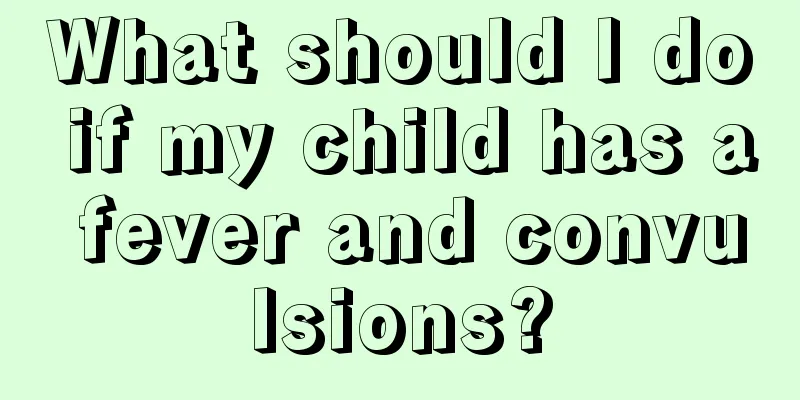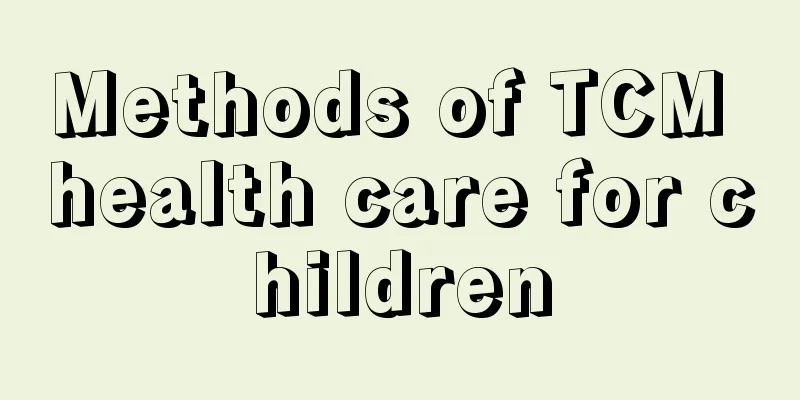How long does it take to treat neonatal pneumonia?

|
Some diseases in life are more likely to occur in newborns, such as pneumonia. If the child is not vaccinated when he is very young, it is easy to cause pneumonia. They have just come into this world and are not particularly adapted to the outside air. The incidence of pneumonia is extremely high. The following explains how long it takes to treat neonatal pneumonia. The issue of treatment time for neonatal pneumonia must be taken seriously. You mentioned the issue of treatment time for neonatal pneumonia. Here is the answer for you. Pneumonia is more serious than the common cold, especially in newborns. Whether it is easy to treat depends on the child's condition. Every child is different, and the severity of the illness is also different. Some recover in 3-5 days, and some in 1-2 weeks. The main treatment methods are as follows: 1. Neonatal aspiration pneumonia (1) Amniotic fluid aspiration pneumonia ① Symptomatic treatment: choose oxygen inhalation through a hood or mechanical ventilation according to the degree of hypoxia; ② Prevention and control of infection: choose broad-spectrum antibiotics against Gram-negative bacteria. (2) Milk aspiration pneumonia Clear the airway: Immediately use a suction tube or endotracheal tube to suction and keep the airway open. ② Improve ventilation and oxygen supply: choose the method of oxygen inhalation according to the degree of hypoxia. Chest X-rays are performed to monitor lung lesions and note the presence of concurrent pneumothorax or mediastinal emphysema. ③Prevention and control of infection: Select broad-spectrum antibiotics and take tracheal secretions for bacterial culture and drug sensitivity testing. ④Symptomatic treatment: ensure nutrition. Those with mild symptoms can be fed small amounts and multiple times. Those with severe symptoms who cannot be fed need intravenous infusion and, if necessary, parenteral nutrition. Treat any complications promptly. 2. Neonatal infectious pneumonia ① Respiratory management: nebulization inhalation, postural drainage, regular turning over and patting the back, timely suction of oral and nasal secretions, and tracheal lavage for patients with severe atelectasis. ② Oxygen supply: Maintain blood gas PaO2 between 50 and 80 mmHg. For mild cases, oxygen is given through a hood. When hypoxia does not improve and blood gas is mainly characterized by hypoxemia, CPAP treatment can be used. Those with blood gas PaCO2 ≥ 70 mmHg, or FiO2> 0.8, PaO2 ≤ 50 mmHg, or repeated apnea require mechanical ventilation. Because pneumonia is often accompanied by emphysema, the initial adjustment parameters should be PIP (peak inspiratory pressure) around 20cmH2O, PEEP3-4cmH2O, and a respiratory rate of 40-50 times. ③Infection control: When bacterial infection is considered but the pathogen is unknown, the third-generation cephalosporin is the first choice and can be used in combination when necessary. Ampicillin can be used for group B hemolytic streptococcal infection or listeria pneumonia. Erythromycin is the first choice for Chlamydia trachomatis and Ureaplasma urealyticum pneumonia. Ganciclovir is the first choice for cytomegalovirus pneumonia. Many newborns will suffer from pneumonia, so when a child is sick with a cold or other conditions, timely treatment should be given to avoid pneumonia. The treatment time for neonatal pneumonia is still very long. In order to shorten the treatment time, you should pay attention to the child’s abnormal changes, give the child more care, and create a more stable living environment for them. |
<<: What is the method for newborn disease screening?
>>: Is it normal for a newborn to snore?
Recommend
32 weeks of premature fetus mother and child should have more contact
A premature fetus at 32 weeks. For the mother, if...
Will children's vulvar leukoplakia heal on its own?
Not only can white spots appear on the surface of...
What are the sequelae of cerebral hypoxia in children?
There are many reasons for cerebral hypoxia in ch...
Why does the child's buttocks itch?
Generally speaking, children will definitely enco...
Baby sweating at night
Babies are the apple of every parent's eye. A...
What are the symptoms of children's intellectual disability?
There is no difference between children when they...
Is perfume harmful to newborns?
Spraying perfume is no longer exclusive to women....
Children's teeth clenching during the day
In fact, it is not only adults who suffer from te...
Is breast development painful?
The normal physiological laws of the human body, ...
What are the white spots on the baby's face?
In the process of taking care of the baby, many p...
How to do a lumbar puncture in a child
Many parents are afraid when they hear about havi...
How to treat recurrent urticaria in children
Because infants and young children have poor immu...
Tips to help your child fall asleep quickly
Nowadays, due to the pressure of life, coupled wi...
What are the treatment measures for diarrhea in children?
Children often have symptoms of diarrhea. The mai...
What causes children to twitch while sleeping?
Children's body regulation ability is relativ...









